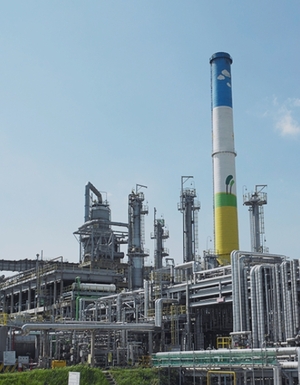The Challenges and Opportunities in Lube Oil Refining
Corps
Challenges
- Changing Regulatory Landscape:
The evolving regulatory environment poses challenges for lube oil manufacturers. Stringent environmental standards and regulations demand the production of lubricants with lower emissions, reduced toxicity, and enhanced biodegradability. Adapting to these changing requirements requires constant innovation and investment in new technologies.
- Feedstock Quality Variability:
The quality of crude oil feedstock can vary significantly, impacting the quality of the final lubricant. Refineries must contend with feedstocks that may contain impurities or undesirable components, requiring sophisticated refining processes to ensure consistent and high-quality lubricant production.
- Demand for Specialized Lubricants:
Increasingly, industries demand specialized lubricants tailored to specific applications, such as high-performance automotive engines, industrial machinery, or renewable energy technologies. Developing and refining these specialized formulations poses a challenge for lube oil manufacturers who must balance performance, durability, and environmental considerations.
- Competition from Synthetic Lubricants:
The rise of synthetic lubricants presents a challenge to traditional lube oil refining. Synthetic lubricants offer superior performance characteristics, such as extended lifespan and better thermal stability. Lube oil refineries must innovate to remain competitive by exploring ways to enhance the performance of traditional mineral-based lubricants.
Opportunities
- Advanced Refining Technologies:
Advances in refining technologies present opportunities to improve the efficiency and flexibility of lube oil production. Hydrocracking, hydrotreating, and other advanced techniques enable refineries to extract more valuable components from crude oil, producing high-quality base oils with enhanced performance characteristics.
- Focus on Sustainability:
The growing emphasis on sustainability opens doors for lube oil refineries to develop eco-friendly lubricants. Incorporating renewable and bio-based feedstocks, exploring recycling methods, and adopting greener production processes align with market demands and regulatory expectations.
- Technological Innovation:
Embracing technological innovation can revolutionize lube oil refining. From AI-driven process optimization to the development of smart lubricants with self-monitoring capabilities, technological advancements offer opportunities to enhance product quality, reduce production costs, and meet evolving market demands.
- Globalization and Market Expansion:
The globalization of industries and the expansion of markets provide opportunities for lube oil refineries to tap into new regions and industries. Collaborations, partnerships, and strategic alliances with international players can lead to increased market share and exposure to diverse consumer needs.
Conclusion
The lube oil refining industry is at a crossroads, facing challenges that demand innovation and adaptability. However, these challenges also present opportunities for growth, sustainability, and market expansion. By leveraging advanced refining technologies, focusing on sustainability, embracing innovation, and exploring new markets, lube oil refineries can navigate the evolving landscape, ensuring they remain integral to the lubrication needs of industries worldwide. As the demand for high-performance lubricants continues to rise, the industry's ability to overcome challenges and seize opportunities will determine its success in the years to come.








commentaires